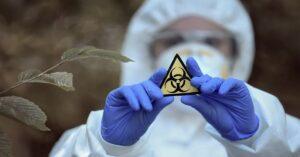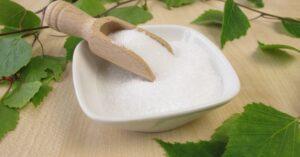Dogs are curious little beings that love to nudge just about anywhere and everywhere. It could be a lick or a tap, but sometimes these small things can result in quite horrific situations.
In this blog, we will be discussing certain toxins that can cause severe health issues, such as seizures, even if they accidentally slip into the pooch’s system. So, without any further ado, let’s start.
The top rated canine-unsafe toxins include: dark chocolate, caffeine, extreme salty food, snali bat, rodenticide, weedicides, most human medications, carbon monoxide inhalation, etc. For more details into the topic, keep on reading.
Table of Contents
What is Seizure in Dogs?
Just like seizures in humans, seizures in dogs happen when there is uncontrollable electrical activity in the dog’s brain. The synapses function abnormally, causing the canine to lose consciousness and exhibit extreme symptoms, which if not treated right away can lead to fatal conclusions.
When a seizure happens, it usually starts with twitching of their body parts and later progresses into more vehement symptoms. From having a confused look on the face to dropping down on the ground and shaking hard with eyes wide open, there are numerous symptoms that could make any pet owner go haywire and feel absolutely helpless at the time.
And while most seizure symptoms are non-fatal by themselves, it is the outside factors that could harm the canine. For instance, almost 80 percent of seizure-related injuries are due to the canine getting hit by a hard surface during convulsions. This is why experts advise monitoring the affected dog’s surroundings and taking them to the vet as soon as possible.
What causes seizures in dogs?
The factors include:
- Kidney or liver disease
- Embolism
- Brain cancer
- Extremely high or low blood sugar
- Encephalitis
- Anemia
- Traumatic injury to the head
- Toxin poisoning
Sometimes seizures in dogs may happen due to any of these causes or because of one or more things happening together. The latter is usually more life-threatening and hence should be dealt with by a professional as quickly as possible.
What Toxins Cause Seizure in Dogs?
Watching your beloved pooch suffer from violent convulsions during a seizure is definitely an agonizing circumstance for any pet owner. The feeling of despair and overwhelming sense of helplessness jams the mind, making you panic even more.
However, if you know the exact toxins that could cause such reactions, you could obviously keep your little fur bundle away. Below is a list of such toxins that can harm your pooch, so let’s dive into the briefing.
Human Food Items
- Xylitol- Typically used as a sugar-free sweetener, xylitol, even in small amounts can leave drastic impacts on a dog’s system. This sweet tasting additive when ingested instantly spikes their blood sugar levels, which can result in various health implications. This includes loss of coordination, vomiting, tremors, and even cause permanent brain damage.
- Ethanol- Although predominantly used in hand sanitizers, mouthwash, and nose sprays, certain amounts of ethanol can also be found in store-purchased apples, grapes or sweet milk and burger rolls. Same as xylitol, it usually causes disorientation in dogs which based upon their dosage can intensify further.
- Salt Poisoning- Unlike us humans, dogs don’t need salt in their feed. And hence if you have been feeding your fur baby excessive amounts of salt, it could easily lead to salt poisoning, which is yet another form of toxin-related medical issue.
- Chocolate & Caffeine- While most dogs do like the sweet savory taste of human chocolates, this particular food comes with two contents that could be severely harmful for the pup. Theobromine and Methylxanthines, mostly found in caffeine and chocolates are one of the leading causes behind toxicity in canines.
Medications and Illicit Drugs
The list of harmful medications for dogs include:
- Ibuprofen, Metronidazole and Aspirin (painkillers)
- Beta-blockers (medication for heart)
- Ivermectin (anti-parasitic medication)
- Theophylline (asthma medication)
- Antihistamines with Chlorpheniramine
- Antidepressants
- Fluorouracil (5-FU) cream or medications (cancer medication)
- Diphenhydramine
- Phenylbutazone
- Procaine Penicillin G
- Decongestants
- Muscle Relaxants, etc.
Apart from the ones mentioned above, there can be a number of other human medications that could be harmful for the dog. Therefore, the key is to keep your prescribed medications and first aid kit safely tucked somewhere away from their reach.
Similarly, ingestion or inhalation of specific illicit drugs is also damaging to a dog’s body. This includes:
- Amphetamines
- Cannabis
- Marijuana
- Cocaine
- Methamphetamines
- Opiates
Household Products
Every year, almost 75 percent of dogs are admitted to emergency vet care centers after ingesting toxic home products. And while thankfully a majority of them recover well, many lose their lives, leaving their owners devastated. So, if you have these below-mentioned items, make sure to keep them away from easy reach, as they can be equally dangerous to both animals and humans.
- Lead (lead-based paint)
- Zinc (pennies)
- Bromethalin (Rodenticide)
- Zinc Phosphate (Mole bait)
- Strychnine
- Pyrethrins and Pyrethroids
- Organophosphates and Carbamates (Weed Killers)
- Metaldehyde (Snail bait)
- Ethylene glycol (Antifreeze ingredient)
Apparently, metaldehyde and bromethalin toxicity rank as the top-two most harmful and highly reported cases amongst all other household products. Here’s a video from Bondi Vet depicting how these toxins can prove to be extremely life-threatening and damaging to the pup.
How to recognize a Toxin-generated Seizure?
Even though toxicity or toxin-related seizures don’t measure up as the number one canine seizure triggers, around 20,000 cases are reported annually alone in the United States, as per ASPCA.
So, in case your dog is showing the below-mentioned symptoms, it could mean that the side-effects are toxin-induced.
- Sudden collapsing on the floor
- Stiffening and uncontrollable twitching of muscles
- Foaming at their mouth
- Chomping or tongue chewing
- Extreme paddling motion with their legs
- Severe drooling
- Wide white eyes
- Excessive chattering of teeth
Depending upon the pooch’s previous health history, there could be newer, rarer symptoms. Thus, if you suspect that is the case, don’t wait for the conditions to get worse.
What should I do if my dog has consumed toxins?
In case your dog is showing seizure-related symptoms or seems to be acting abnormally, call your veterinarian without lapsing anymore time. Unlike what so-called ‘dog-care influencers’ may advise, never and I repeat NEVER EVER try to induce regurgitation in the pooch. Depending upon the toxin they have ingested, inducing vomit may go either really well or create much more fatal repercussions.
You may also want to look for toxin samples, including wrappers, stains, broken containers, or turned-over bins. This will aid the doctor finalize the content that may be causing the side-effects and hence proceed with toxin-specific treatment methods.
However, if there is no such proof, the only right thing to do is to immediately take the pup to a vet clinic. Once down there, the doctor will then carefully and thoroughly examine the pooch’s body, measure their weight and record their temperature before starting with the after treatment procedures.
While most toxins can be easily removed through induced vomiting (in case the duration between ingestion and regurgitation is less than 2 hours), others might need specialized care. Based upon the type and amount of the toxin as well as the duration for which it has been within the canine’s stomach, the vet may do a full-fledged surgery to bring the pooch back to its normal condition.
In the latter case, the dog may have to spend a few days under strict supervision of the vet staff. This is to detect and treat any further organ malfunctioning the toxin may have caused while inside their system. Once the danger has subsided, the vet will discharge the canine with further after-care guidelines that the owner will have to religiously commend by.
Conclusion
Witnessing your beloved pooch suffer a seizure is hands-down one of the most terrifying experiences. However, rather than being all-panicky, pet parents should try to keep their composure, as visible weirdness will also affect the pooch. The canine may get tensed, leading to further worsening of their symptoms.
So, RETAIN YOUR CALM, GET THE TOXIN PROOF, and CALL/VISIT THE SPECIALIST ASAP.
You may also like:
What happens if a Dog Licks Human Blood?
Reference:
- pets.webmd.com/dogs/dog-seizure-disorders
- wedgewoodpharmacy.com/blog/posts/a-guide-to-seizures-and-convulsions-in-dogs.html
- sevneurology.com/blog/toxins-for-dog-seizures/
- outwardhound.com/furtropolis/health-wellness/what-toxins-can-cause-seizures-in-dogs
- iloveveterinary.com/blog/what-toxins-can-cause-seizures-in-dogs/
- pubmed.ncbi.nlm.nih.gov/19939714/
- en.wikipedia.org/wiki/Bondi_Vet
If you are a dog lover then, Subscribe to our weekly newsletters. No Spams!










